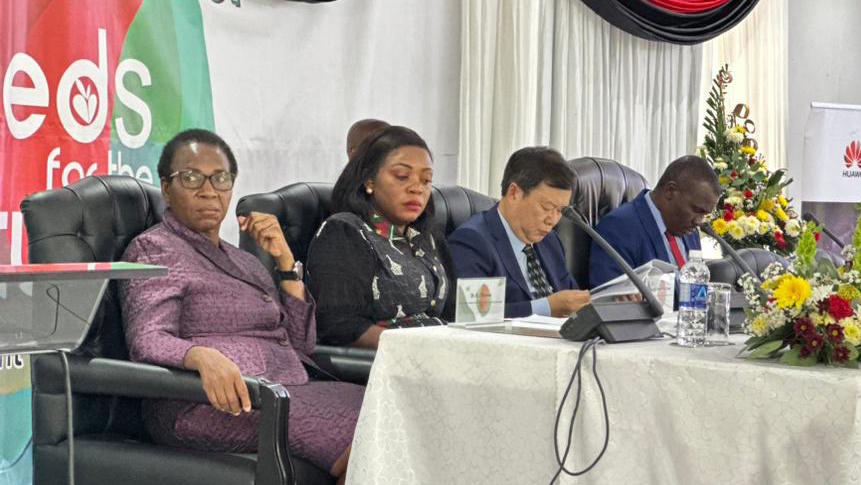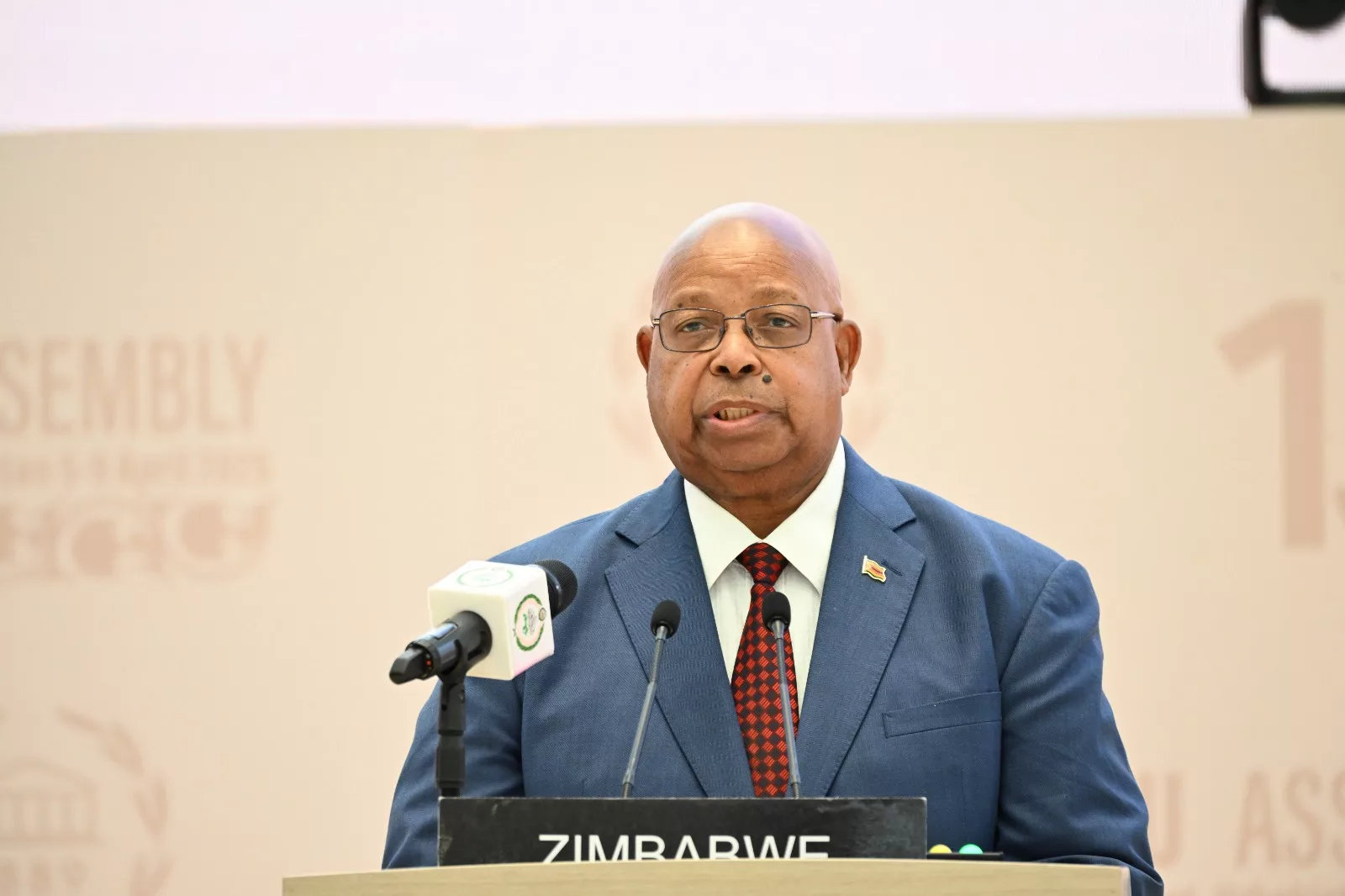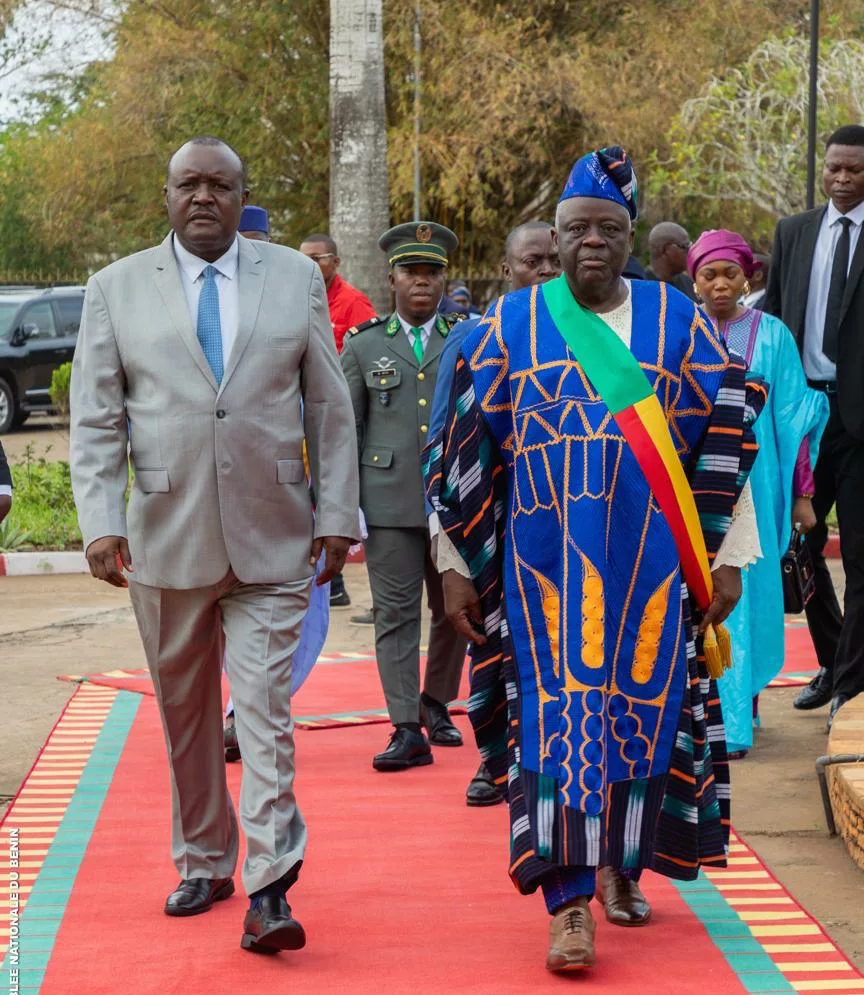|
Getting your Trinity Audio player ready...
|
Since 2015, Huawei Zimbabwe has been running the program “Seeds for the Future”, which annually offers exceptional young people from Zimbabwe the opportunity to receive training in cutting-edge technologies such as artificial intelligence, cloud computing, and 5G.
In his address, H.E. Ambassador Zhou Ding at the official opening ceremony of Seeds for the Future Program 2023 held on 24 October 2023, said digital talents are pivotal for fostering the high-quality development of a digital economy.
“I believe that the“Seeds for the Future”program will continue to serve as an enabler and catalyst in propelling Zimbabwe’s digital economy and high-tech sector forward. Digital technologies are key driving forces for countries’ sustainable economic growth. In recent years, China has expedited the development of “Digital China”. By the end of 2022, the scale of China’s digital economy had reached 7.8 trillion US dollars, contributing to 41.5% of China’s GDP. China has already established 2.3 million 5G base stations with 561 million household 5G users, accounting for over 60% of the global market share.
“The number of PCT international patent applications in the information field reached nearly 32 thousand, capturing up to 37% of the global share. China is now leading the world in technology, industry networks, and application areas in the field of 5G. The digital economy has emerged as a crucial engine for China’s economic growth and social progress,” Ambassador Zhou said.
A lot has been achieved in Zimbabwe’s ICT sector. At the World Economic Forum (WEF) 2022, his Excellency President Mnangagwa emphasized that “The future of business, development and wealth creation now depends on digital economies.” In 2020, the Zimbabwe government became a part of the “African Union Digital Transformation Strategy (2020-2030)” and identified the digital economy as one of its 14 priority areas for governmental development. There has been substantial progress in the construction of digital infrastructure in Zimbabwe, with basic 4G network coverage in major cities and some populous areas. In February 2022, Zimbabwe launched its first 5G network service.
“China and Zimbabwe have fostered a strong partnership in the realm of the digital economy. In the field of information and communication infrastructure development, Huawei, and key Zimbabwean operators have joined forces to construct nearly 4,000 base stations, ensuring coverage in major cities and even some remote rural areas. The third phase of the broadband construction project by Huawei and NetOne is progressing steadily. Upon completion, it will significantly enhance mobile broadband network coverage in Zimbabwe and expedite the nation’s digital transformation journey,” he said.
In terms of Big Data applications, the Phase One High-Performance Computing Center, built with a Chinese government grant in 2015, has been instrumental in advancing hydrology, meteorology, life sciences, agriculture, virus prevention & control in Zimbabwe. The Phase Two project, also granted by China, is set to begin shortly, aiming to meet the growing computing power requirements in Zimbabwe’s digital sector and expand the range of application scenarios. It is poised to become a significant catalyst for the development of artificial intelligence and related industries in Zimbabwe.
In the field of Smart Agriculture, the Chinese Academy of Sciences has collaborated with institutions like the United Nations Conference on Trade and Development (UNCTAD) this year to provide training on the operation of the CropWatch in Zimbabwe. This system will significantly enhance Zimbabwe’s capacity to address the challenges of global climate change and improve Zimbabwe’s governance of food security.
During the just concluded Belt and Road Forum for International Cooperation in Beijing, H.E.President Xi Jinping announced that China will establish pilot zones for Silk Road e-commerce cooperation. China will hold the Global Digital Trade Expo annually. During the Forum, China also launched the Global AI Governance Initiative. The Initiative outlines China’s proposals on AI governance.
There are calls to adhere to the principle of developing AI for the good of humanity. There is a need to uphold the principles of mutual respect, equality, and mutual benefit in AI development, and oppose drawing ideological lines or forming exclusive groups to obstruct other countries from developing AI; We should promote the establishment of a testing and assessment system based on AI risk levels, so as to make AI technologies more secure, reliable, controllable and equitable.
“We support efforts to develop AI governance frameworks, norms and standards based on broad consensus and support discussions within the United Nations framework to establish an international institution to govern AI; Efforts should be made to provide assistance to developing countries, to bridge the gap in AI and its governance capacity.”
In August, during the China-Africa Leaders’ Dialogue in South Africa, President Xi Jinping also launched the Initiative on Supporting Africa’s Industrialization, the Plan for China Supporting Africa’s Agricultural Modernization, and the Plan for China-Africa Cooperation on Talent Development. These plans will inject new momentum into China-Zimbabwe cooperation. Further development of Zimbabwe’s digital economy and ICT sector will strongly promote the industrialization and modernization of Zimbabwe, helping Zimbabwe to achieve its NDS1 target and 2030 Vision. As Zimbabwe’s long-term friend and partner, China stands ready to work more closely with Zimbabwe in this regard.
Hon Tatenda Mavetera, the Minister of ICT, Postal and Courier Services said through the Seeds for the Future programme, Huawei has contributed significantly to raising the bar for Information and Communication Technologies (ICT) human capital development in Zimbabwe.
“Zimbabwean university students studying ICT, engineering, and other related fields will benefit immensely from the study programme, which will provide them with training on ICT technologies and solutions and a first-hand working experience of the operations of the dynamic telecommunications company and Chinese culture. In this way, the programme will cultivate local ICT talent, promote knowledge transfer, and improve the students’ interest and understanding of the telecommunication industry. The Seeds for the Future programme will provide opportunities for young academics to benefit from the high-level ICT competence of Huawei and in the process improve professional competence in this area,” Hon Mavetera said.
Prof Amon Murwira, the Minister of Higher and Tertiary Education, Innovation, Science and Technology Development said Huawei has also partnered with Zimbabwean Universities to launch ICT Academies at five institutions in Zimbabwe: the University of Zimbabwe, Midlands State University, NUST, Arrupe Jesuit University and TelOne Centre for Learning. The ICT Academy, which is part of an initiative adopted by Huawei and the universities, will enhance graduate employability.
Undergraduate and graduate students will be exposed to end-to-end holistic ICT training covering IP. Wireless and Fixed Transmission, and Core Networks. Under the programme, students from these universities have participated in the Global ICT Competition. Students from UZ-Huawei ICT Academy have won third place in the 2021-22 and 2022-23 competitions.
The collaboration between the Zimbabwean Universities and Huawei Technologies Zimbabwe Ltd is in line with the major thrust of the Government of Zimbabwe to achieve excellence in the advancement of knowledge through innovative educational programmes and apply that knowledge through local, regional, and international engagement in order to catapult our Universities to the highest levels in terms of ranking among institutions on the African continent.
These programmes also highlight Huawei’s philosophy of collaboration between academia and industry. Successful collaboration between academia and industry is key to the advancement and growth of higher education in Zimbabwe. The transfer of technology, sharing of industry know-how and best practices, joint problem solving as well as collaboration in technical areas, research, and human capital training, are among the many benefits of a strong relationship between academia and industry. The ultimate aim is to prepare university students and graduates to thrive in a global, technology- and innovation-centric economy and the opportunities it presents.






